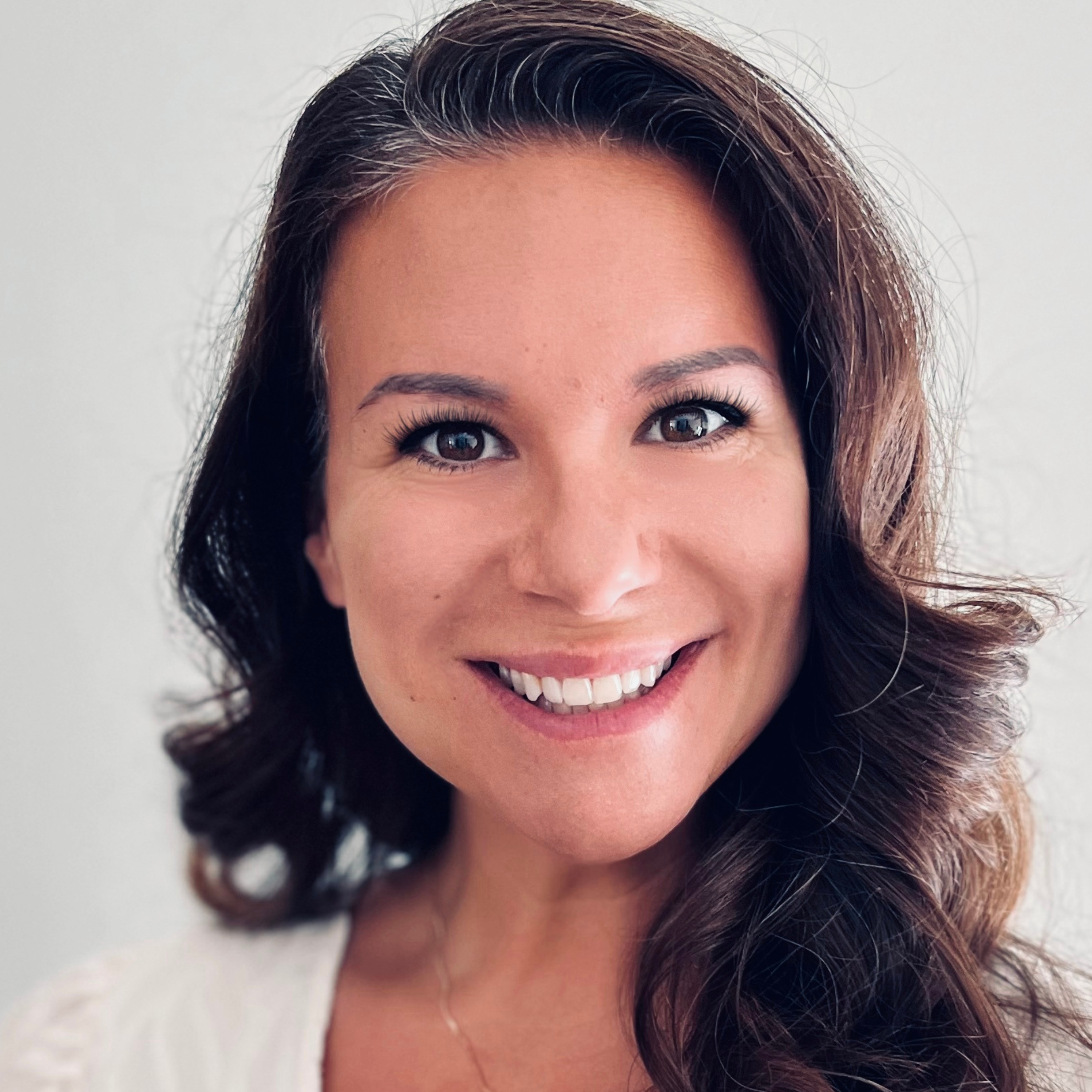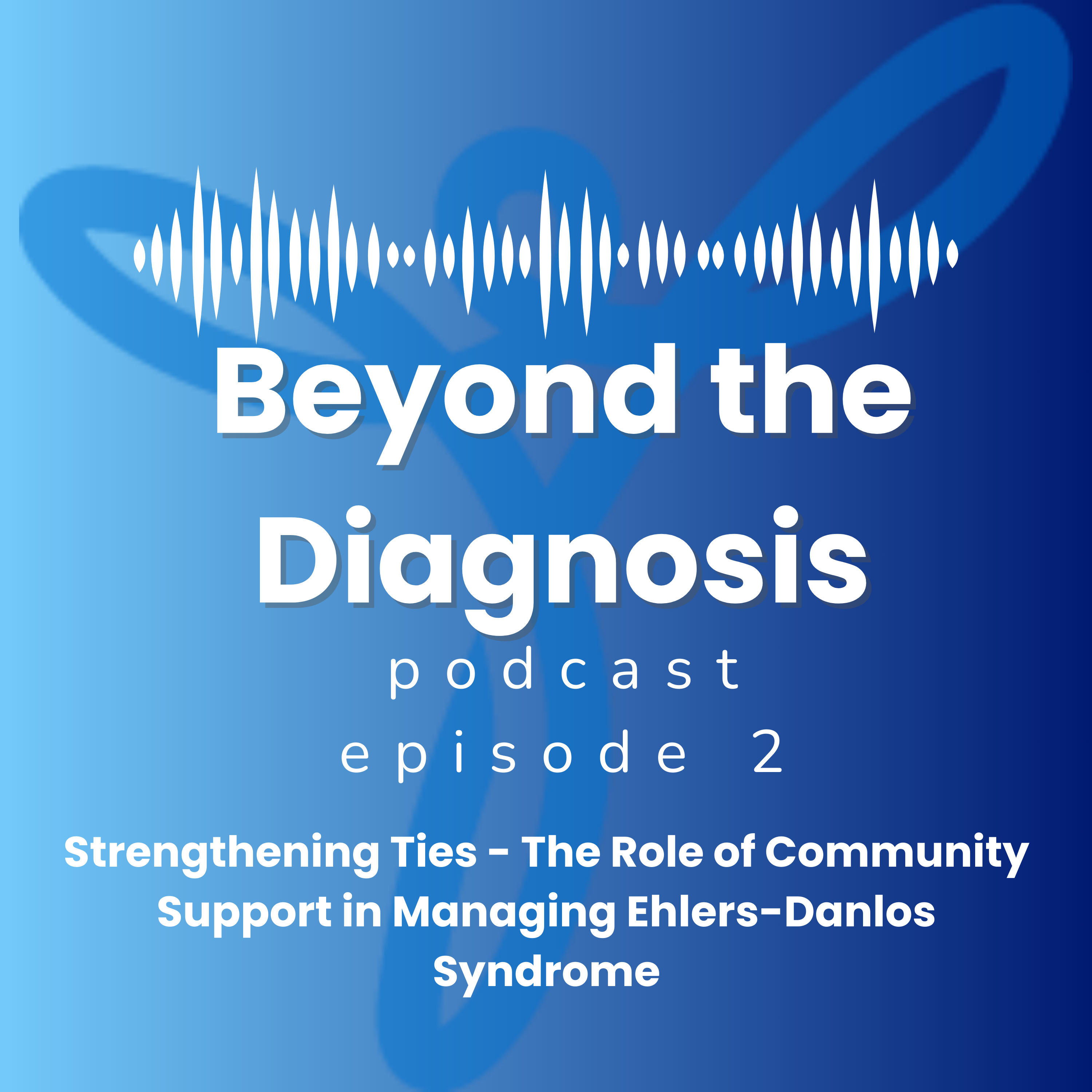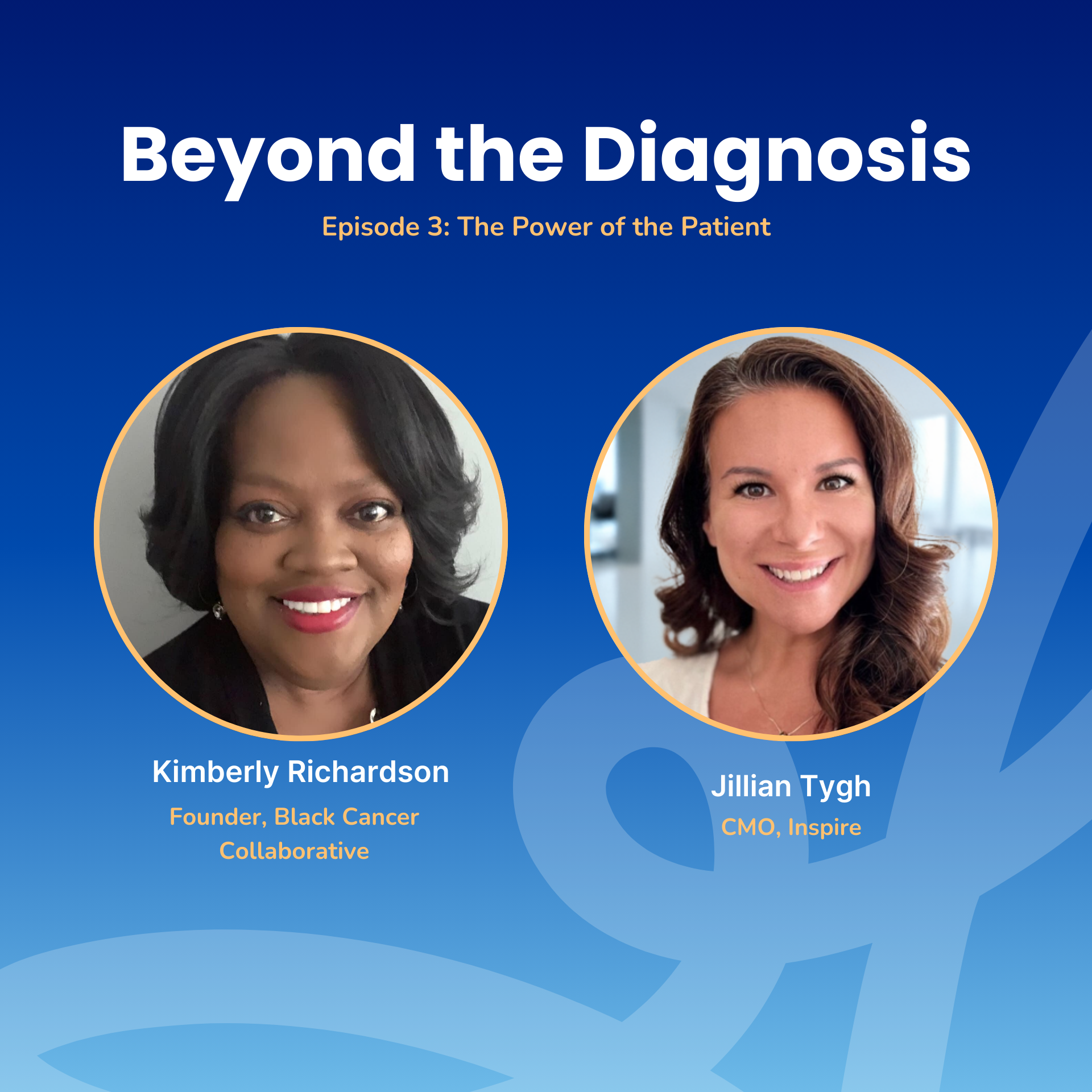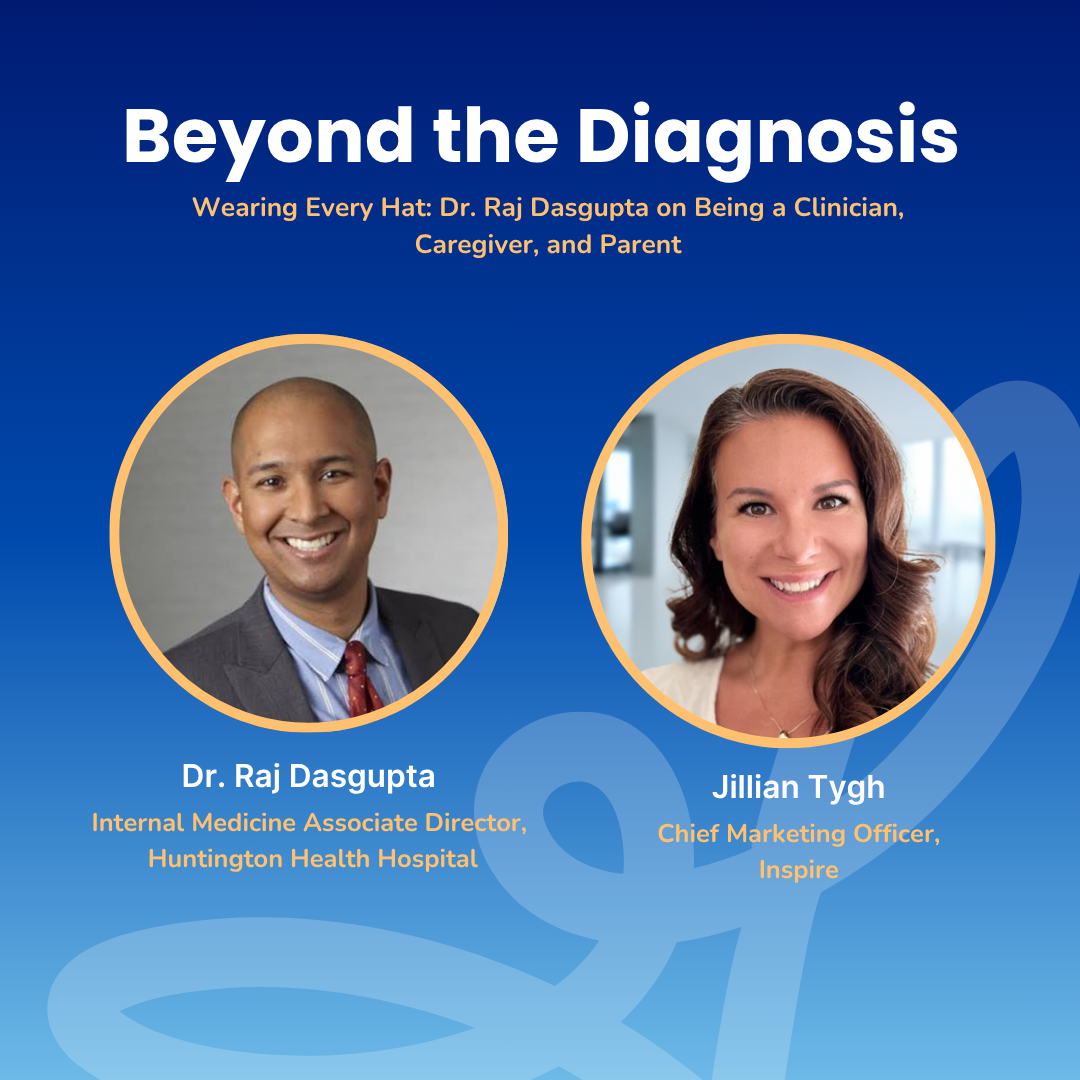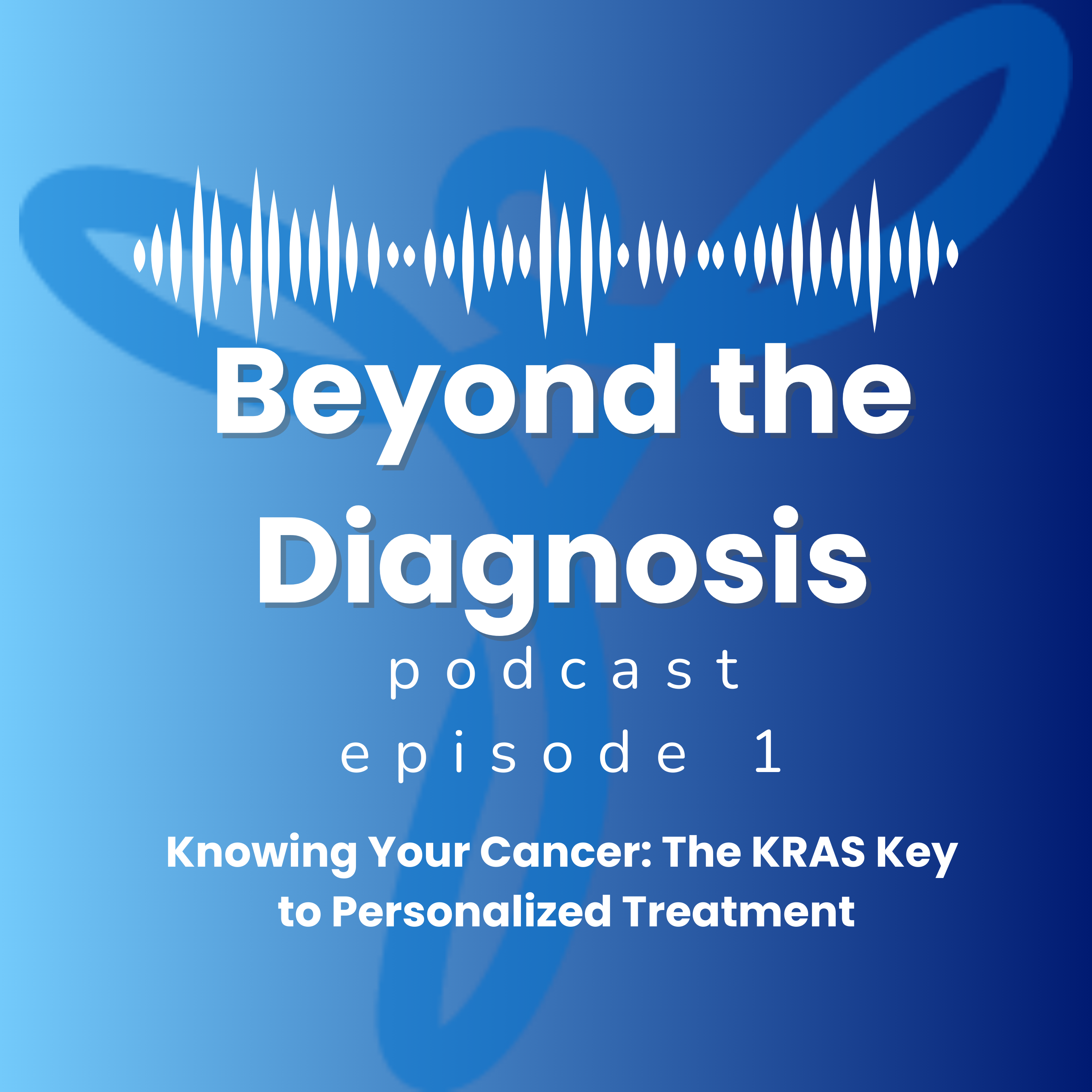Episode Transcript
[00:00:08] Speaker A: Hi, welcome to the beyond the Diagnosis podcast where we dive into patient stories of change and innovation that truly impact patients lives. I'm Jillian Tai, your host and chief Marketing officer at Inspire where we're passionate about fostering online communities and providing education for patients and caregivers. Today I'm joined by Sarah Hamilton and Scarlett Eagle from the Ehlers Danlos Society. Sarah and Scarlett, thank you so much for joining me today. If you wouldn't mind, could you give a bit of an introduction to yourselves and your backgrounds. Perhaps we'll start with Sarah.
[00:00:41] Speaker B: Hi. Thank you. Yeah, I'm Sarah Hamilton, I'm the accessibility coordinator at the Ehlers Danlos Society.
So I have a bit of a varied role. I look after translations volunteers, DEI and esg. So a real kind of mixing bag. And then my background is actually been working in the kind of EDS world world for the past 10 years and then previous to that I did autism and brain injury. So kind of a real kind of care and support focused background. And I've been here about a year now and as you can tell I am UK based.
[00:01:18] Speaker A: Scarlett?
[00:01:20] Speaker C: Yeah, thanks. I'm Scarlett Eagle. I'm the community Education manager at the Ehlers Danlos Society. So I'm involved with creating educational resources about EDS and hsd.
But I've had the chance to be involved with so many of our community programs over the year, over the years. So it's been really great to see kind of all of the different things our organization has been doing.
My background is more science based. I studied genetics at university and got involved with some research projects but ultimately became involved with some advocacy work and found a place for myself in education. So love working for the Ellers Danlos Society.
[00:01:57] Speaker A: Awesome, thanks for sharing that. Today we're going to be discussing some key programs and community support, but before we dive into that, could you just give us a brief overview of what Ehlers Danlos syndrome is and the common challenges that individuals with EDS often face?
[00:02:17] Speaker C: Yeah, so I'm happy to answer that. So the Ehlers Danlos syndromes are a group of 13 different heritable connective tissue disorders.
Each type of EDS has its own features and then the hypermobility spectrum disorders are diagnosed when a person has symptomatic joint hypermobility but doesn't meet the criteria for one of the types of Ehlers Danlos syndrome or another condition that could explain their symptoms.
Each type of EDS has its own symptoms as I mentioned, but some symptoms are seen across all types.
Across all types we see joint hypermobility, skin hyperextensibility and tissue fragility. Now, because connective tissue occurs throughout the body, these conditions can cause symptoms in many different areas.
Some common symptoms include chronic pain, acute pain, fatigue, joint instability, which can include subluxations and dislocations. There are also many comorbidities or conditions that occur alongside EDS and HSD that can affect many different parts of the body.
[00:03:20] Speaker A: So by way of challenges, right, what, what is like a, what's like a day to day like for an Ehlers Danlos syndrome patient? What is like their, their primary challenges that your society and other community facing groups kind of are looking to overcome or help them with?
[00:03:39] Speaker C: Yeah, so unfortunately there are many challenges for our community. So, you know, there's the challenge of even getting diagnosed and accessing the care that you need. There aren't enough knowledgeable providers about EDS and HSD to support our community. So there are a lot of access issues. In terms of finding the care that you need, in terms of managing daily life, I would say probably one of the biggest challenges that our community faces is just not having, you know, enough energy or spoons, if you will, to do the things that you want to do and kind of having to pace yourself throughout your life to make sure that you're able to do the things that are most important to you, which sometimes comes at the cost of, you know, not getting to do certain things that might be less important. So really pacing, I would say, is one of the biggest challenges of living with EDS and hsd. But again, it really varies across types because with certain types there are, you know, particular challenges that we don't see in others. Sure, sure. Okay.
[00:04:37] Speaker A: So it sounds like if you're, you know, struggling to find a provider or, you know, even, even information. Right. It sounds like community based support would be really, really valuable to these patients. So how does the Ehlers Danlos Society help in building a supportive community for those affected by eds? And could you share some examples of your initiatives?
[00:05:01] Speaker B: Yeah, absolutely. That's a really fantastic question.
So we have so much going on, a real kind of broad spectrum of things. And our main areas are care access, research and education. But kind of overseeing all of that is support. And we have our support groups, we have our helpline, we have our professionals directory, we have About Echo program for professionals. The list is a big old long one, which is always a really good thing. And then obviously we utilize inspire boards as well, which is really, really helpful for our community members.
And in terms of, say, looking at the support groups specifically, we have loads and loads of different ones, they're virtual as well, so you can kind of tune in from no matter where you are. We've got an LGBTQIA group, we've got communities of colour, parents, teens, eds type specific groups. And what's. What's really great about those is that peer to peer support. So not only do we have kind of every step through the journey of EDS and hsd, so you're looking at getting diagnosed, you can contact our helpline, you're looking at finding a practitioner who actually knows about EDS and is able to support you. We have our professionals directory. Then you've been diagnosed and you kind of go, actually, I want to speak to some people who genuinely understand what it is like to be in my position. And then we've got those fantastic support groups where you can meet others and have that connection and get questions answered as well. I think that's really important. There are often a thousand questions that you've got going on, so we've got loads of different ways you can access that as well through support. If you want to speak to one of us, we can help with that. But if you want to speak to someone else in a similar position, you can or go to our professionals directory and speak to someone that you know is going to be able to specifically answer that question. And for professionals as well, with the ECHO program and the education there, they get a better idea of what it's like to live with EDS and hsd. And obviously then that provides support not only to them, but also to the community members as well. So kind of making sure that we're, we're taking every step along the way, making sure that everyone is covered for the various things that we do.
[00:07:16] Speaker A: Yeah, that's great. It sounds like you really have support throughout the entire patient journey, from, you know, diagnosis and onto, you know, through treatment and through living with this disease, which is wonderful. And I think it's so important, the work that you're doing.
In what ways have you seen community support impact the lives of these individuals? And are there any particular stories that have touched you or exemplify the importance of your work?
[00:07:46] Speaker B: Yeah, absolutely. We actually had a recent story which was really lovely to hear about, and again, kind of concretes that journey. So we had a social media post went out about a young child with brittle cornea syndrome, which is really, really rare type of eds, and then another community member spotted that and thought, oh, I think I can help, I think I can provide some support here. Then they reached out to the helpline and made connections there and kind of like, how do we go about this? What can we do? What support have you got? Where do we go from here? Then a connection was made and it actually went on that this young child was then able to get a really necessary but hard to find surgery. And just watching that connection unfold and hearing that story and then hearing the really positive outcome at the end was just really, it was really lovely to see. It was something that we all really loved hearing about as well. It was a really nice thing that we all got called about that happened. And it was from one side of the world to the other, which really highlights the kind of global impact and I think those kind of stories and that's, that's not a kind of one off as well, we hear about these things all the time, which is so important. And that kind of global reach of just because I'm on one side of the world and you're on the other doesn't mean that we can't connect and be able to offer that support and that community and just kind of general feedback that we get. We get really lovely comments which are always really nice to hear. It's always a really positive motivator to hear those wonderful things coming back, whether it's from the support groups or social media or on the inspire boards that people are saying, you know, this has just been invaluable, it's so helpful. It's made the world of difference and it just kind of really cements that, that what is being done is positively impacting the community, supporting the community and then just kind of drives us to like, what else can we do? What else can we put in place? You know, where else can we reap? How much bigger can we get? So it's just really beautiful to see. But yeah, I think that story particularly kind of stood out to all of us as a team.
[00:09:53] Speaker A: Yeah, no, I completely agree. I think the advancements in social media and having you mentioned it was a social post, you never know who's reading it. But I think that these sort of community groups and social outreach, it really kind of bridges that gap. And for a rare disease it's even more important because I think it's 1 in 5000 has Ehlers Danlos, if I'm not mistaken. And finding that community and being able to talk to each other and, and they're so supportive of one another and able to help out, that's so, so, so important.
Let me ask you this now. You know, what role does peer support play in the mental and physical health of individuals with eds?
[00:10:40] Speaker C: Yeah, so that's a great question and something that I love to talk about because peer support can play such a bigger impact in the lives of people with EDS and HSD than I think many people realize.
So ultimately, you aren't alone in this. You know, there are so many people who have EDS and HSD around the world, and it's great to come together and share knowledge and resources, and that's really what we do in our virtual support groups. So, I mean, it's of course great to come to these groups and get the emotional support to feel validated and connect with other people who understand what you're going through. And that's a huge part of these social connections. But I think many people don't realize that there's also the benefit of learning to better live with EDS and hsd.
So through our virtual support groups on our Inspire platform, and even through our helpline, people come with questions and they can get feedback in real time from people who have possibly been in their shoes before and had to navigate the challenges that they're currently dealing with.
So there is so much opportunity there to learn from other people within our community.
And, you know, there's so many tools that you can gain and that you can add to your toolkit so that you too can, you know, better live with EDS and hsd. So, yeah, I think that peer support plays a huge role. And anyone who's not taking advantage of kind of the peer support systems that we do offer, I encourage you to join Inspire or our virtual support group so that you're able to make these connections and really take advantage of the resources that we have.
[00:12:14] Speaker A: Yeah, I completely agree. And you know, it's. As I mentioned before, the world has gotten so much smaller with advancements of technology and social media. So, you know, how has technology influenced the way the Ehlers Danlos society and the EDS community at large kind of build and maintain these support networks?
[00:12:33] Speaker B: I think that it's been, it's. It's been a huge beneficial steps. So I think, you know, even thinking back to pre Covid, I know Covid for a lot of us, kind of changed everything in the terms of the way technology was utilized. But because we're a remote organization anyway, we're in a really positive position where we were kind of utilizing those technologies anyway. We are global, so our reach is huge. And using technology has meant that we're able to effectively reach people as well. So a really good example is our conferences.
So these are fiber hybrid now, so we may have a conference in Canada it's obviously, if you're nearby, great, you can attend that conference. If you're other side of the world, that's going to be really difficult. But you can tune in virtually. You can also access all the recordings afterwards. But more than that, from an accessibility point of view, we have, we've used technology so that we can live translate our conferences into over 60 languages. So not only can you access it from anywhere else in the world, you're going to be able to access it in your language in real time, which is just such a huge step in really utilizing technology to make a difference to the community. And it also means as well that those professionals that are attending can get that information. Go, okay, right, I've got all that now and I can take it back to my community. I mean, we had our latest conference people tuning in from Sierra Leone, Venezuela, you know, Australia, us. It really was really, really bored and without the technology we wouldn't be able to do that. And there's just more things coming out as well. You know, last year we didn't have the live translations. This year we do. What will next year look like? So it's really nice as well to look to the future and how we can really utilize technology to ensure that not only is there a big reach, but it's a quality reach as well, which is really important to us.
[00:14:30] Speaker A: Yeah, I suppose, I do suppose part of that is the silver lining that came out of COVID the advanced technologies, the ability to kind of have these virtual events that we could do. Very limited prior to that. Right. So, so now it's, it's a whole new scale and the translations, it's, it's. Yeah, that's amazing and it's great to hear.
So, you know, on that topic or kind of looking forward, you know, what new projects or initiatives does the Alexander Society have planned to further support the EDS community?
[00:15:03] Speaker C: So that's a great question. I could say so many things. We have so many exciting things coming up.
One thing that I guess I'll choose to highlight is our community Experience survey. So we actually are working on getting a survey out there to our community right now to better understand kind of the lived experiences of people with EDS and hsd, from the diagnostic journey to accessing care and support services, to the impact on daily life, including, you know, work, school, finances, relationship, kind of the overall impact that these conditions are having on our community. We're putting out a survey next month to collect real life experiences so that we can, you know, better understand our community and really align community needs with the goals of advocacy groups, healthcare professionals, researchers, policymakers and stakeholders around the world. So I'm really hoping that this survey will help us better support our community in that way by better understanding their needs and encourage anyone who has EDS or HSD to participate in this exciting project.
[00:16:09] Speaker A: And then just kind of wrapping things up. Where can, if there's a patient who's listening, who's not engaged with the Ellers danlos society or inspire.com where can they go to get more information? You know, where would you want to point them towards to. To find out more and to kind of join a community and get that support that we've been discussing today?
[00:16:32] Speaker B: Yeah.
[00:16:32] Speaker C: So I would say just first of all, checking out our website in general and just kind of exploring the different tabs and exploring just the resources that we have to offer and kind of finding the right ones for you. So virtual support groups might be right for someone, while Inspire is a better platform for other people.
So kind of exploring those. And then I would say after looking at our website, I would encourage anyone new to contact our helpline and, you know, ask your questions and see what the best way is for you to get involved. Our helpline is always happy to share links to our different, you know, support programs and services and information. So I would say the helpline is like a really good place to start if you have questions about EDS or hsd.
[00:17:12] Speaker B: Excellent.
[00:17:12] Speaker A: All right, well, thank you both so, so much for being here today. I really appreciate your time and I know that, you know, our listeners are going to really enjoy this as well. So thank you so much for giving us this insight into the Ehlers Danlos Society and your patients. I really appreciate it.
[00:17:29] Speaker B: Thanks, Joe.
